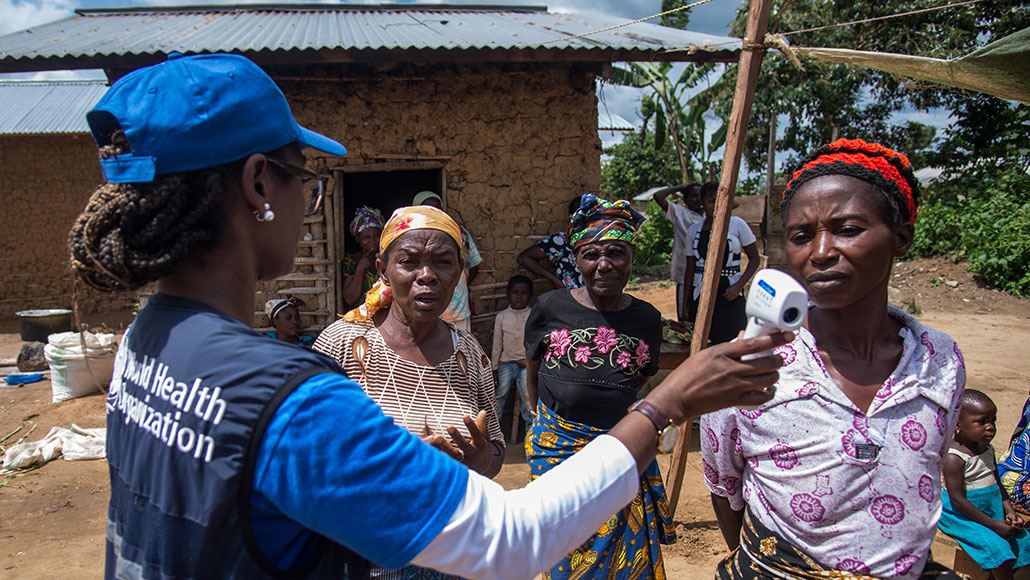WHO declares a public health emergency over Congo’s Ebola outbreak
The risk of the disease spreading to neighboring countries is considered high

CONTACT TRACING A health worker with the World Health Organization screens people who may have come in contact with someone sick with Ebola in Congo’s North Kivu Provence.
WHO/J. Kannah







